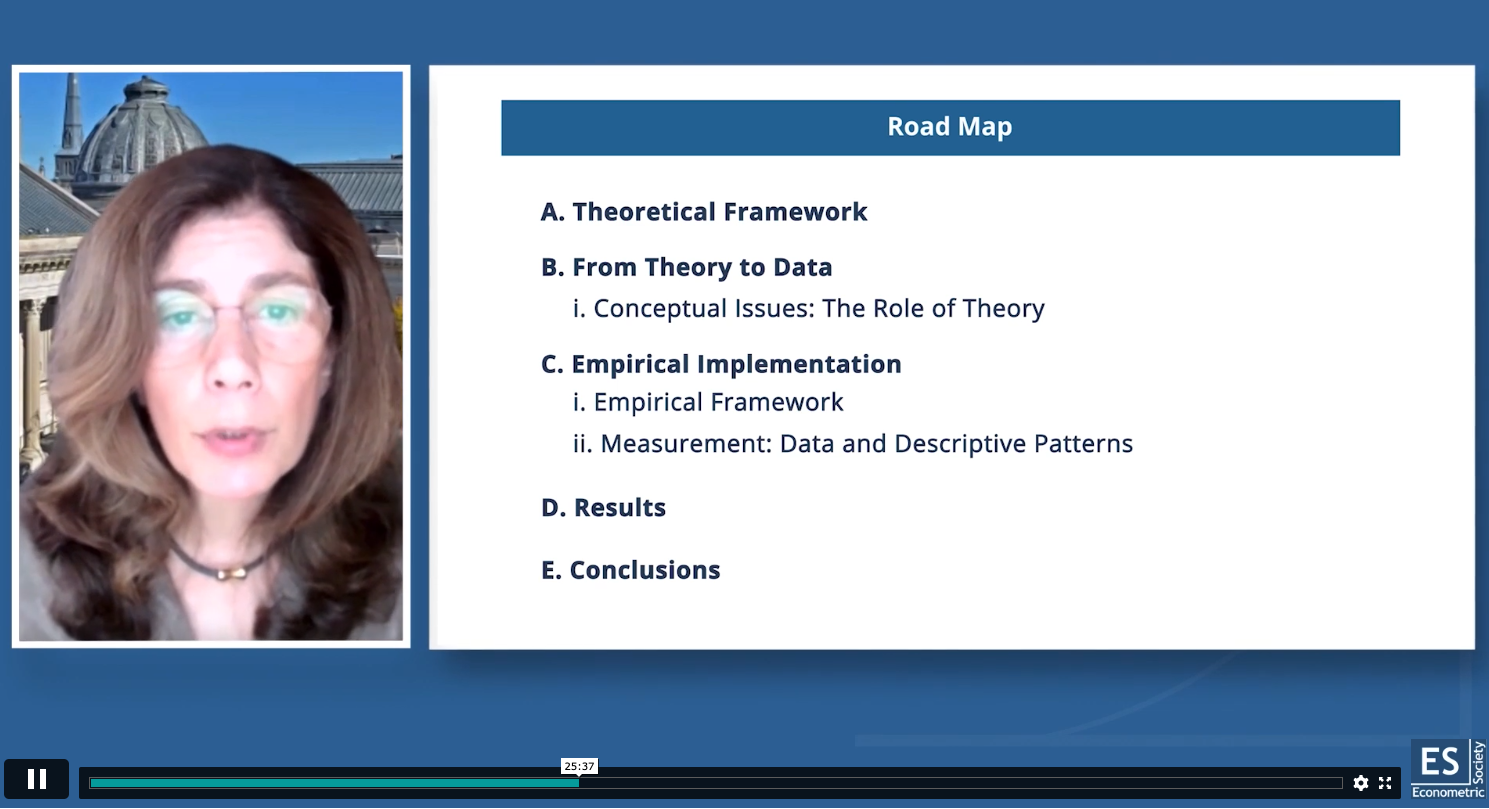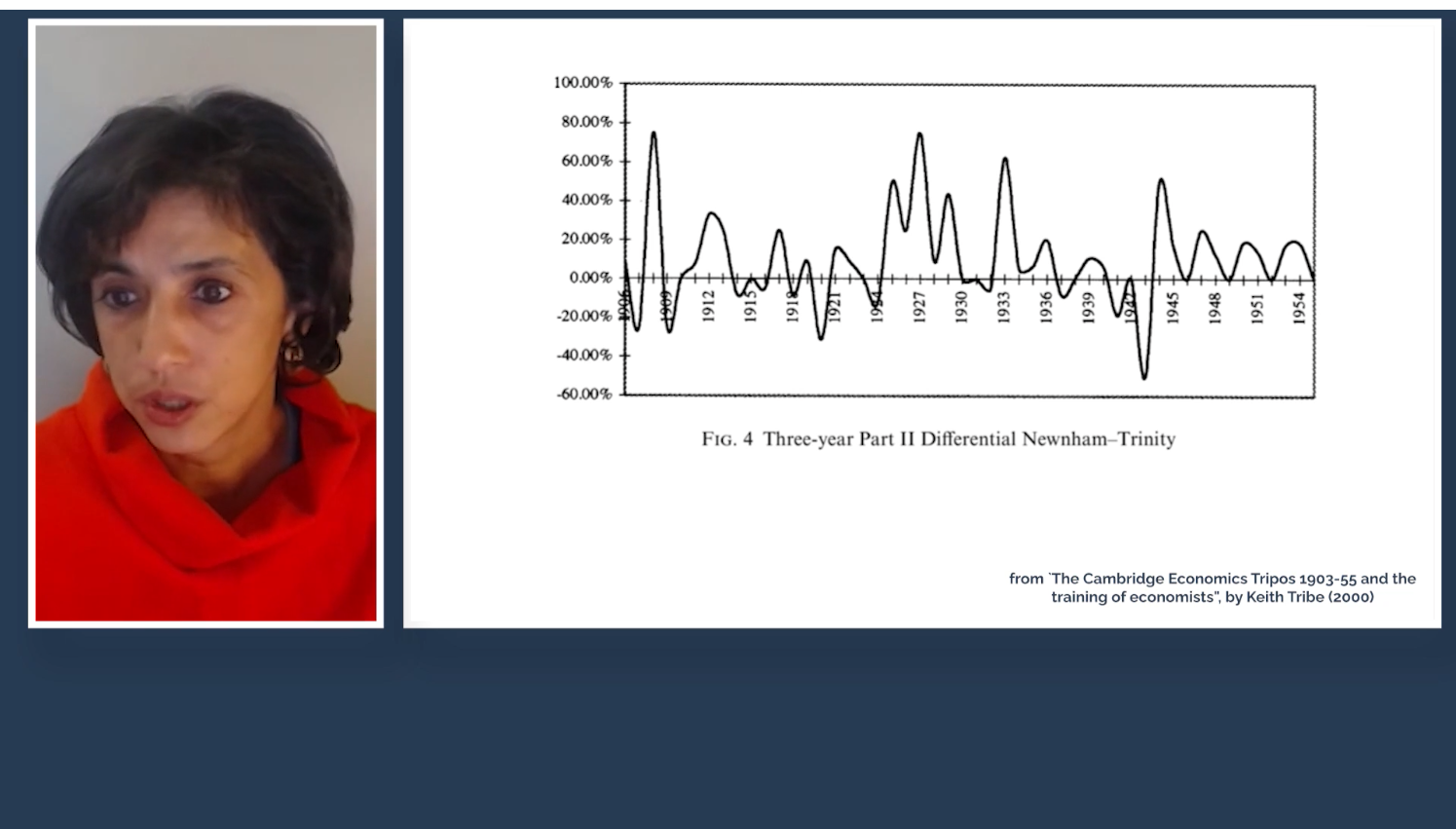Demand and Development: EGC’s Penny Goldberg and Rohini Pande at the 2021 Congress of the European Economic Association
by Clare Kemmerer
December 2, 2021
EGC affiliates presented recent research in talks at the annual meeting of the European Economic Association and the Econometric Society, which took place virtually August 23-27, 2021. A common theme across the two talks was the role of demand-side factors in impacting the nature of development. Goldberg focussed on the role of economic equality in creating robust within-country domestic demand that can propel growth. Pande, in contrast, discussed how gender norms and bias can restrict demand for women’s work and, arguably, cause misallocation of resources.

Pinelopi Koujianou Goldberg, the Elihu Professor of Economics and a faculty affiliate of the EGC, delivered the Presidential Address to the Econometric Society as part of her role as president of that organization. She articulated a new model for development – one which foregrounds domestic demand, in contrast to export-driven models. Those models are made precarious, Goldberg argued, by the increasing role of technology, which has begun to compete with the cheap labor that fueled economic development of some nations, especially in East Asia. The backlash against globalization and multilaterism – that is, the adoption of consistent policies across multiple countries – also necessitates a model of development less rooted in exports.
Goldberg emphasized the importance of economic equality as a prerequisite for developing domestic demand, especially in smaller nations. An equitable distribution of economic resources within a nation can aid in the development of a robust middle class, therefore building a market within the nation and reducing the reliance on exports. In large nations, the buildup of a sizable middle class might provide a large enough market to support development. But the elimination of poverty may be near impossible for many small nations if they close to international markets. Economic equality can be a stabilizer, with domestic demand being protective against vulnerabilities caused by changing international policies and an increased reliance on technology in the place of cheap labor.

Rohini Pande, the Henry J. Heinz II Professor of Economics and Director of the EGC, presented the 2021 Marshall Lecture, asking the question: “how do gender roles that restrict women to the private sphere sustain themselves?” Pande’s topic derived from the title of the lecture series itself. Mary Paley Marshall (1850-1944) was the first female lecturer of economics at Cambridge and half of the first “professional couple” in economics: her husband Alfred Marshall, for whom the lecture was named. While initially a proponent of women’s education, by 1896, Alfred Marshall had exerted significant energy and resources to fight the admission of women to Cambridge, arguing that “when jobs are scarce, men should have more right to a job than women”, and that “a university education is more important for a boy than a girl”.
Pande used Alfred Marshall’s story –from avid supporter to bitter opponent of women’s education – to situate a broader exploration of the norms that place the labors and behaviors of men and women into separate spheres. Rooted in the institution of marriage, these norms are reaffirmed in key moments of transition for the structure of the labor force, as when new employment becomes available, or when the competition for those jobs increases. The norm of the man as head-of-household justifies laws that impede women’s participation in the labor force, both legislation that actively discriminates against female workers and that which fails to provide protections against discrimination. Men are also, subsequently, preferred candidates for high-paid work.
Cambridge would not begin awarding women degrees until 1948, and the Cambridge economics department of today lacks any women in full-professor positions. Pande’s conclusion emphasizes that change in women’s participation in the labor market will occur most effectively when labor within the home is acknowledged as unwaged labor. The legal and political structures that preserve separate spheres economically benefit only men, who are, as in the case of Marshall, often the beneficiaries of the unpaid and unrecognized labor of women.